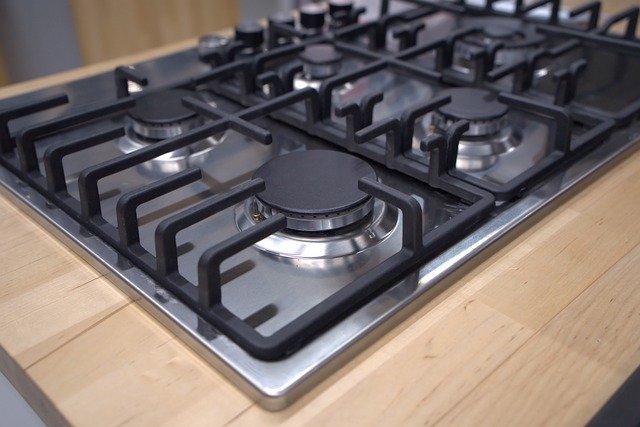Fatal Crowd Control Problems at Astroworld
 It is crucial for organizers and personnel to take seriously the need to address crowd control accidents at big public events. Crowd surges can have deadly consequences, as we recently saw with the Astroworld Music Festival in Houston. Even before it was underway, there were signs that crowds could dangerously get out of control. There were 50,000 at the sold-out show, and after the festival began on November 5th, concertgoers had gotten through the main gate inappropriately. People breached the gate and jumped the barricades. There were 3000-5000 concertgoers who were not scanned before they came into the venue and the situation only became more chaotic. Ten people were killed as a result of the crowd surge, some of whom were children, and at least 300 were injured. If you were injured as the result of a crowd surge, you should call the experienced Chicago-based lawyers of the Moll Law Group. We represent accident victims around the country.
It is crucial for organizers and personnel to take seriously the need to address crowd control accidents at big public events. Crowd surges can have deadly consequences, as we recently saw with the Astroworld Music Festival in Houston. Even before it was underway, there were signs that crowds could dangerously get out of control. There were 50,000 at the sold-out show, and after the festival began on November 5th, concertgoers had gotten through the main gate inappropriately. People breached the gate and jumped the barricades. There were 3000-5000 concertgoers who were not scanned before they came into the venue and the situation only became more chaotic. Ten people were killed as a result of the crowd surge, some of whom were children, and at least 300 were injured. If you were injured as the result of a crowd surge, you should call the experienced Chicago-based lawyers of the Moll Law Group. We represent accident victims around the country.
By evening, the police reported that one stage had dangerous crowd conditions. The festival organizer took the stage at 9 p.m., by which time over 260 people had already sustained injuries, including crush injuries. Several were trampled and fell unconscious. A mass casualty incident was reported within an hour of headliner Travis Scott taking the stage. Seventeen had been taken to the hospital, including six suffering from cardiac arrest, from 10 p.m. – 11:40 p.m.
More than 90 civil suits were filed in state court in short order. These lawsuits were brought against promoter Live Nation, concert organizers, city officials and performers. The allegations are that security personnel, organizers and risk directors did not protect the thousands coming to the festival. The numbers of medical staff were insufficient. One concertgoer, who later fainted, reported that paramedics did not respond to a woman with a seizure in the crush of people.
 Illinois Injury and Mass Tort Lawyer Blog
Illinois Injury and Mass Tort Lawyer Blog






 Utility vehicles are motorized four-wheeled vehicles used for recreation and driving on rough terrain. Unfortunately, they also have a reputation for being dangerous. Many utility vehicle accidents have resulted in fatalities due to defects in the vehicle. Recently, the Kubota utility vehicle was
Utility vehicles are motorized four-wheeled vehicles used for recreation and driving on rough terrain. Unfortunately, they also have a reputation for being dangerous. Many utility vehicle accidents have resulted in fatalities due to defects in the vehicle. Recently, the Kubota utility vehicle was  Chicago parents should remain alert to the possibility of furniture tip-overs. Certain dressers are not safe or carry a great hazard of tip-overs. A child can be quickly and silently crushed beneath dressers. Parents or other caregivers may not hear their cries, or they may not even have time to cry before suffering fatal injuries. Recently the Nova Series 5-Drawer Chest, Model B1428-10 was
Chicago parents should remain alert to the possibility of furniture tip-overs. Certain dressers are not safe or carry a great hazard of tip-overs. A child can be quickly and silently crushed beneath dressers. Parents or other caregivers may not hear their cries, or they may not even have time to cry before suffering fatal injuries. Recently the Nova Series 5-Drawer Chest, Model B1428-10 was  This past summer, a woman and her son filed a lawsuit after a 10-quart Tristar Power Pressure Cooker XL exploded and caused them serious injuries and damages. After seeing the manufacturer’s infomercial, a woman had bought the pressure cooker to gift her daughter for Christmas. There have been many
This past summer, a woman and her son filed a lawsuit after a 10-quart Tristar Power Pressure Cooker XL exploded and caused them serious injuries and damages. After seeing the manufacturer’s infomercial, a woman had bought the pressure cooker to gift her daughter for Christmas. There have been many  Last year, a woman who was trying to make beans in a Crock-Pot 6-Quart Express Crock Multi-Cooker pressure cooker was left with second and third-degree burns on her arms, chest, and face. She reported that the way the pressure cooker was sitting, it hit the cupboard and flew across the kitchen. Hot liquid exploded everywhere. The accident happened quickly, so that there was no time to protect herself. She reported that the pain was unlike anything she had ever experienced before. The pressure cooker was
Last year, a woman who was trying to make beans in a Crock-Pot 6-Quart Express Crock Multi-Cooker pressure cooker was left with second and third-degree burns on her arms, chest, and face. She reported that the way the pressure cooker was sitting, it hit the cupboard and flew across the kitchen. Hot liquid exploded everywhere. The accident happened quickly, so that there was no time to protect herself. She reported that the pain was unlike anything she had ever experienced before. The pressure cooker was  October is National Window Covering Safety Month. Tragically, children have silently suffered catastrophic injuries or strangled to death on cords for window coverings like blinds and drapes. It doesn’t take much time for a child to get a cord caught around his or her neck. As a matter of safety, it is wise for parents and caregivers to install cordless blinds. The Consumer Product Safety Commission (CPSC)
October is National Window Covering Safety Month. Tragically, children have silently suffered catastrophic injuries or strangled to death on cords for window coverings like blinds and drapes. It doesn’t take much time for a child to get a cord caught around his or her neck. As a matter of safety, it is wise for parents and caregivers to install cordless blinds. The Consumer Product Safety Commission (CPSC)  Fall Hazards with Antigravity Chairs
Fall Hazards with Antigravity Chairs Children in Chicago and elsewhere are often extremely curious. They may put things in their mouths that are dangerous or should not be consumed. Among the many attractive products that may intrigue kids are magnets, whether refrigerator magnets or magnetic spheres or toys that contain magnets. They may be drawn by a bright color or by a toy’s magnetic properties. In August 2021, Zen Magnets and Neoballs Magnets were
Children in Chicago and elsewhere are often extremely curious. They may put things in their mouths that are dangerous or should not be consumed. Among the many attractive products that may intrigue kids are magnets, whether refrigerator magnets or magnetic spheres or toys that contain magnets. They may be drawn by a bright color or by a toy’s magnetic properties. In August 2021, Zen Magnets and Neoballs Magnets were  The United States Consumer Product Safety Commission (CPSC) recently announced an alarming
The United States Consumer Product Safety Commission (CPSC) recently announced an alarming  Parents in Chicago and around the country should be aware that recently, Ryan and Rose
Parents in Chicago and around the country should be aware that recently, Ryan and Rose